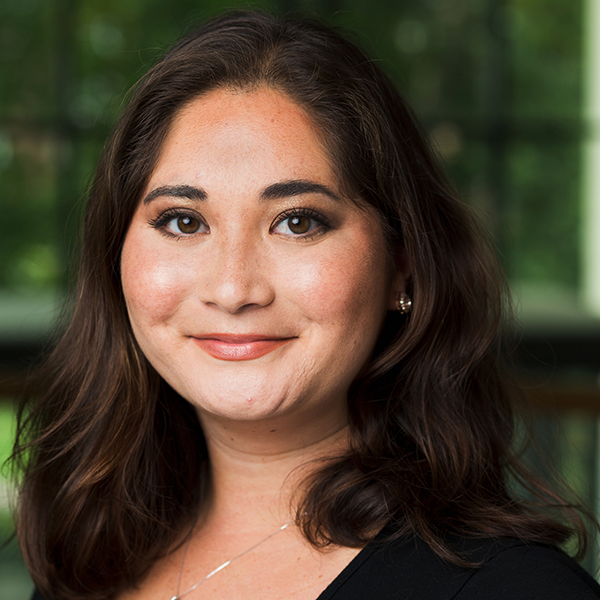02 Jun 10 Ways Writers Changed Me This Year
10 Ways Writers Changed Me This Year
by Kaela Mei-Shing Garvin (they/she)
BAPF45 Play Selection Advisor
Hard as I try to shift my mindset from scarcity to abundance, the going can get rough around this time of year for playwrights. While rejections flood my inbox like El Niño on a wet year, I cheer for my own yeses amid a larger sea of nos. Last year, Playwrights Foundation gave me an affirming yes, inviting my play Tiger Beat to be a part of the 44th Bay Area Playwrights Festival.
Another affirming yes came in the fall: I was thrilled to join the Playwrights Foundation team as the BAPF45 Play Selection Advisor, a process that involved reading and talking about an array of outstanding plays and playwrights. As the inaugural Play Selection Advisor, I collaborated with Literary Manager Heather Helinsky and Literary Fellow David Quang Pham. Together we examined feedback from our National Committee readers, then recommended which plays should move forward into the next rounds for further consideration. We were able to give each work a strong amount of consideration with in-depth conversation. For those interested in learning more, I find Heather Helinsky’s essays The Challenge of Cultivating a Garden of New Plays and Studying the Stars in our Universe of New Plays to be excellent overall guides to the Playwrights Foundation review system.
There were more joyful moments throughout the process as I communicated with readers and read the scripts themselves. I laughed, cried, and came away with an even deeper respect for the work playwrights do. The amount of craft, care, and creativity in the plays I read bowled me over. I visited countless new worlds, each a theatrical marvel, and I cherish the great plays I had the good fortune to meet.
In conversation, Bay Area Literary Council members shared their connections to these works after reading each and providing written feedback. As readers got to talk about the plays that stuck out to them, they grew increasingly animated, myself included, and I’m excited to share my findings as to what resonates in a selection process. Here are 10 ways writers changed me that I discovered throughout this year’s process:
10. Meaty characters in complex relationships
Whether they be human, animal, or inanimate, the figures populating these works made us fall in love over and over again. The characters came from all walks of life, and their connections with each other made the dialogue sing in my head. Since there was such variety on offer, characters with nuanced contradictions stood out.
9. Family ties
Biological or found, familial bonds showed up over and over again in our most-discussed works. Often these challenged traditional norms, asking us to consider – then re-consider – our assumptions around love and belonging.
8. Questions of ownership
Many of the plays from this process framed their work around who gets to tell what story. Who has the right to tell which narratives – and why? These dramatized questions felt relevant and potent in 2022.
7. Unique Images
I loved when plays engaged me through their visuals. The power of a well-constructed stage picture brought me to tears on more than one occasion. [Gosh, I wish I could share some examples, but it’s to the playwrights’ credit that so many are flashing in my mind’s eye right now.]
6. Playing with Language
Heightened, poetic, colloquial: writers showed up with a variety of text tools and used the heck out of them. Some used languages other than English to create their play’s sonic landscape, while others beautifully used the full scope of monolinguistic writing.
5. Playing with Time
Tempus fugit when you’re reading works that consider theater’s temporal medium. Tight linear works, tempo changes, act breaks, non-chronological romps: time is a component in every play, and it was fascinating to see how different writers wrangled it.
4. Playing with Form
In “Elements of Style” Suzan-Lori Parks writes that “content determines form and form determines content.” What a joy to see so many self-determined plays that executed known forms expertly, stretched our brains while exploring the unknown, or fell somewhere in between with purpose.
3. Nuanced Relevancy
Dreaded questions haunt theatermakers of all stripes: what is this play about? And why this play now? We can only hope our work will stand the test of time, a bouquet of both evergreen and seasonal. It was thrilling to come across plays that spoke to our current moment, and thrilling when we could see how their reach might extend past tomorrow, next month, next year.
2. Theatricality: or, plays that need to be plays
Another dreaded question can haunt writers: why is This a Play? It can be hard to answer, but we read uniquely theatrical work that showcased every facet of the medium, including time, audience, space, and performers. These moments left us with that old refrain: simply because.
1. Breaking The Rules
This year writers taught me over and over again that there is no wrong way to write a play! The ways in which playwrights innovated, pushed boundaries, and created their own dramaturgy leapt off the page. They broke the rules about what plays should be, creating new possibilities for what theater could be. There is no possible list that could encompass all elements of the work we encountered this year, and from these brave works I discovered we can all push past what we think readers want in order to write authentically, rules be darned.
Through learning from other playwrights, I found some of that abundance after all. I’ve found inspiration in our writers who have changed me through their work, and I leave this process ultimately hopeful about the future of American theater, especially in the Bay. I feel hella lucky to be a part of it.
Kaela Mei-Shing Garvin, Play Selection Advisor (they/she) is a writer, producer, performer, and educator. Their plays include Tiger Beat (2021 Bay Area Playwrights Festival, 2021 Seven Devils Conference finalist), Harpers Ferry 2019 (2021 Kendeda Playwriting Award finalist, Alliance Theater workshop, 2022 Know Theatre production in Cincinnati), Call Out Culture: or, the unbearable whiteness of being (2021 NADIA Amplified Currents Festival, 2019 Ars Nova’s ANTFest), and The Well-Tempered Clavier (2020 BAPF finalist.) Garvin is the recipient of six Kennedy Center awards and is a current member of The Coop’s Clusterf**k, Playground NY, and Pipeline Theater Company’s Playlab. Their plays have been developed with The Alliance Theater, Montana Repertory Theater, and College of the Holy Cross, and have been produced at New York venues including Dixon Place, the New Ohio, and Ars Nova. Garvin is a founding member of Undiscovered Countries, a Brooklyn-based incubator of new interdisciplinary art, and they currently teach playwriting and theater history at Cornish College of the Arts. MFA, Indiana University; BFA, NYU. www.kaelameishinggarvin.com / IG: @kaemeishing, Twitter: @KaeMeiShing



No Comments